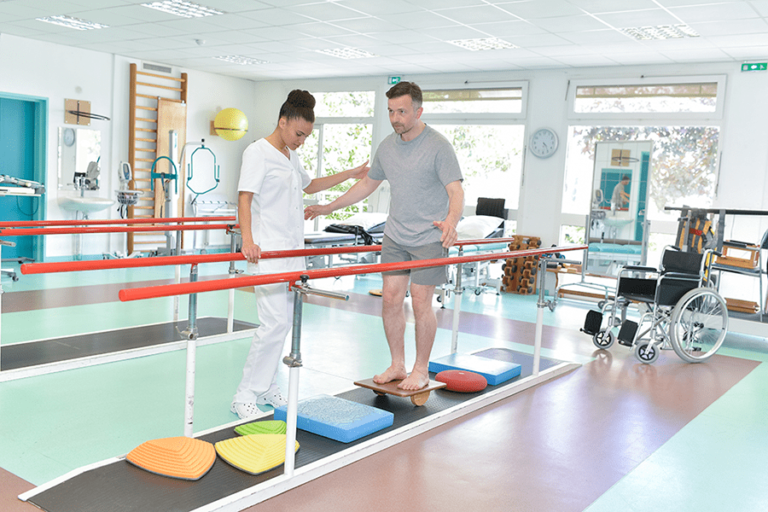Addiction is a pervasive and Rehabilitation Centres complex issue affecting millions of individuals and their families worldwide. The journey to recovery is often fraught with challenges, requiring a multifaceted approach to address the physical, psychological, and social aspects of addiction. Rehabilitation centers play a crucial role in this process, offering structured environments, professional support, and comprehensive treatment plans to facilitate long-term recovery. This article explores why rehabilitation centers are essential for achieving and maintaining sobriety, highlighting their benefits and the services they provide.
The Complexity of Addiction
Table Of Contents
Understanding Addiction
Addiction is a chronic disease characterized by compulsive substance use despite harmful consequences. It affects brain function and behavior, creating a dependency that can be incredibly difficult to overcome without professional help. The impact of addiction extends beyond the individual, affecting families, workplaces, and communities.
The Need for Comprehensive Treatment
Given the complex nature of addiction, effective treatment must address multiple facets of the disease. This includes detoxification, behavioral therapy, mental health support, and aftercare planning. Rehabilitation centers are uniquely equipped to provide this level of comprehensive care, making them essential for successful recovery.
Benefits of Rehabilitation Centers
Structured Environment
Safe and Supportive Setting
One of the primary benefits of rehabilitation centers is the structured environment they offer. This setting provides a safe and supportive space free from the triggers and temptations of everyday life. In this controlled environment, individuals can focus entirely on their recovery without the distractions and pressures of their usual surroundings.
Routine and Stability
Rehabilitation centers like Rainford Hall implement daily routines that include therapy sessions, educational workshops, and recreational activities. This structure helps individuals develop a sense of stability and discipline, which is crucial for building new, healthy habits and routines that support long-term sobriety.
Professional Support and Expertise
Access to Medical Professionals
Addiction often involves significant physical health challenges, particularly during the detoxification process. Rehabilitation centers provide access to medical professionals who can manage withdrawal symptoms, address co-occurring health issues, and ensure the safety and comfort of patients throughout their stay.
Specialized Therapists and Counselors
In addition to medical support, rehabilitation centers employ specialized therapists and counselors who are trained to address the psychological aspects of addiction. These professionals use evidence-based therapies such as cognitive-behavioral therapy (CBT), dialectical behavior therapy (DBT), and motivational interviewing to help individuals understand their addiction and develop effective coping strategies.
Comprehensive Treatment Programs
Detoxification
The first step in many rehabilitation Rehabilitation Centres programs is detoxification, which involves cleansing the body of addictive substances. This process can be physically and emotionally challenging, but it is a critical foundation for recovery. Rehabilitation centers Rehabilitation Centres provide medical supervision and support to manage withdrawal symptoms and ensure a safe detox process.
Individual and Group Therapy
Therapy is a cornerstone of addiction treatment. Rehabilitation Rehabilitation Centres centers offer both individual and group therapy sessions, allowing individuals to explore personal issues, receive support from peers, and develop communication and social skills. Group therapy, in particular, fosters a sense of community and shared experience, which can be incredibly empowering.
Holistic Therapies
Many rehabilitation centers incorporate holistic therapies such as yoga, meditation, art therapy, and equine-assisted therapy. These approaches address the mind, body, and spirit, promoting overall well-being and offering additional tools for managing stress and emotions. Holistic therapies can enhance traditional treatment methods and support a more balanced recovery process.
Relapse Prevention and Aftercare
Developing Coping Strategies
A critical aspect of long-term recovery is learning how to prevent relapse. Rehabilitation centers focus on teaching individuals effective coping strategies to deal with triggers, cravings, and stressful situations. These skills are essential for maintaining sobriety after leaving the structured environment of the rehab center.
Aftercare Planning
Recovery is an ongoing process that extends beyond the initial treatment period. Rehabilitation centers provide aftercare planning to support individuals as they transition back to their everyday lives. This can include continued therapy, support group meetings, sober living arrangements, and other resources to help maintain long-term sobriety.
The Social Aspect of Rehabilitation
Building a Support Network
Peer Support
One of the most valuable aspects of rehabilitation centers is the opportunity to build a strong support network. Connecting with others who are experiencing similar challenges can provide emotional support, encouragement, and motivation. These relationships can be a vital source of strength and accountability during and after treatment.
Family Involvement
Rehabilitation centers often encourage family involvement in the recovery process. Family therapy sessions can help repair relationships, improve communication, and educate family members about addiction and recovery. This support can create a more stable and supportive home environment, which is crucial for sustained recovery.
Reducing Stigma
Promoting Understanding
Addiction is often accompanied by stigma and Rehabilitation Centres’ misunderstanding. Rehabilitation centers play a crucial role in reducing this stigma by promoting education and awareness. By providing a supportive and non-judgmental environment, they help individuals and their families understand that addiction is a disease that requires professional treatment.
Encouraging Treatment
The stigma associated with addiction can prevent individuals from seeking the help they need. Rehabilitation centers work to break down these barriers, encouraging people to pursue treatment and support. This can lead to earlier intervention and better outcomes for those struggling with addiction.
Conclusion
Rehabilitation centers are essential for long-term recovery from addiction. They provide a structured and supportive environment, professional medical and psychological care, comprehensive treatment programs, and vital resources for relapse prevention and aftercare. By addressing the complex nature of addiction and promoting holistic well-being, these centers play a crucial role in helping individuals achieve and maintain sobriety. The benefits of rehabilitation centers extend beyond the individual, positively impacting families, communities, and society as a whole. For those struggling with addiction, seeking help from a rehabilitation center can be a transformative step towards a healthier, more fulfilling life.
